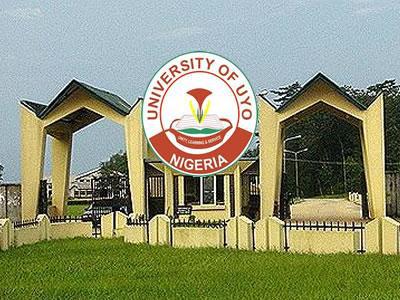Ini Billie, Uyo
The University of Uyo has said it would partner with WaSH-Gender research team to improve the quality of lives and livelihoods of women and girls in Akwa Ibom State.
Vice Chancellor of the University of Uyo, Prof Nyaudoh Ndaeyo pledged the commitment of the institution in ensuring that the research team led by Dr Emmanuel Akpabio, Director of International Programmes, Uniuyo succeeds in executing its grant on medium-scale projects on water and development.
Nyaudoh who said the outcome of the WaSH-Gender project would help strengthen the international profile of the university commended the constituting of the research team and welcomed the
the guest speaker/trainer, Ghana-based American Professor, Leonard Baer.
The partnership programme which consists of the IHE-Delft Netherlands, funded by the DGIS, the development cooperation agency of the Dutch Ministry of Foreign Affairs on “Environmental and socio-cultural factors of gender-based differences in access to water, sanitation and hygiene in South-South Nigeria”, is focused on addressing the issues surrounding the relationship between gender and access to water, sanitation and hygiene (WaSH).
Speaking on the essence of the research, Dr Emmanuel Akpabio, Geography and Natural Resources Management, Uniuyo
said on Tuesday in Uyo that men and women in Nigeria access WaSH services differently due to cultural traditions and geographical circumstances.
Akpabio mentioned that the project was designed to improve the quality of lives and livelihoods of women and girls in the catchment communities where the research would be conducted, as well as serve as part of their community service responsibilities.
“Women spend disproportionately more time than men, on average 5 hours a day, fetching water in parts of rural Nigeria, and are exposed to risks of physical harm, sexual abuse, and health-related challenges.
“Inadequate access to water exacerbates workload imbalances between men and women; and for women, failure to achieve socially expected responsibilities in WaSH may trigger intimate partner conflicts and violence including spousal quarrels and physical fights,” he stated.
Akpabio explained that the project which will span 18 months, would be conducted in three communities: Mbiabet Ikpe, Ibeno and Eastern Obolo in upland northern and southern Akwa Ibom State respectively.
He stated that the research would involve series of workshops, public meetings, oral testimonies, research, data collection, public engagement, advocacy and dissemination, and announced a five-day training workshop on gender sensitivity and qualitative research between December 19-23, 2022).
He revealed that the research findings would later form part of the special congress session under the International Water Resources Association (IWRA) XVIII World Water Congress to be held in Beijing, China between September 11-15, 2023 where shared understanding and public support for appropriate policy and programmatic options for sustainable changes in behaviours and practices to achieve gender equity and inclusive policy would be developed.

